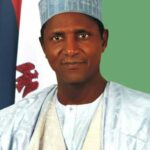
Human rights activist and former presidential candidate, Omoyele Sowore, has criticized Niger State Governor, Umaru Bago, over his recent directive instructing religious preachers to submit their sermons in advance for review by government authorities.
Speaking in an interview with Platinum TV, Sowore described the policy as an overreach of executive power and a violation of citizens’ fundamental rights to freedom of religion and expression.
According to him, governors have no business dictating the content of religious messages, as existing laws are already sufficient to punish inflammatory or inciting speech.
“It’s not his business to decide what a preacher does,” Sowore said. “If a preacher is engaging in inflammatory preaching, there are already laws to handle that.
But asking them to submit sermons in advance? Does the Governor of Niger state know the Quran? If he knows the Quran, why not become an imam instead of a governor?”
Sowore argued that Governor Bago’s time would be better spent addressing pressing governance challenges in Niger State, including insecurity, poor infrastructure, and unemployment, rather than attempting to police religious discourse.
He warned that such policies could set a dangerous precedent for abuse of power and lead to further tensions between the state and religious communities.
Governor Umaru Bago has faced growing criticism since issuing the directive, which he said was aimed at curbing hate speech and preventing religious crises in the state.
The governor’s office maintained that the move was a proactive step to promote peace and unity, insisting that Niger State had experienced multiple security threats linked to incendiary preaching.
However, Sowore and other civil society advocates argue that the measure is disproportionate and undermines Nigeria’s secular principles as enshrined in the constitution.
“If the government is worried about extremist preaching, what it should do is enforce the law, not turn the state into a religious censorship board,” Sowore said during the interview.
The directive has also sparked mixed reactions among religious leaders in Niger State. Some clerics welcomed the move, saying it could help prevent sermons that incite violence, while others condemned it as an infringement on their independence and an attempt to politicize the pulpit.
Political analysts say the controversy highlights the delicate balance between regulating religious activity for public safety and safeguarding freedom of worship.
“Nigeria has a history of religious tensions, so governors are often under pressure to take preventive measures,” said Kaduna-based policy expert, Dr. Zainab Abdullahi. “But requiring prior approval of sermons risks alienating faith leaders and could even escalate tensions if not handled carefully.”
Sowore concluded his remarks by calling on Niger State residents and Nigerians at large to resist what he termed “creeping authoritarianism.”
He emphasized that democracy thrives only when leaders respect constitutional boundaries and allow citizens to express themselves freely without undue interference.
Find Verified News At Your fingertips Click The Button Below








True talk,Sowore.